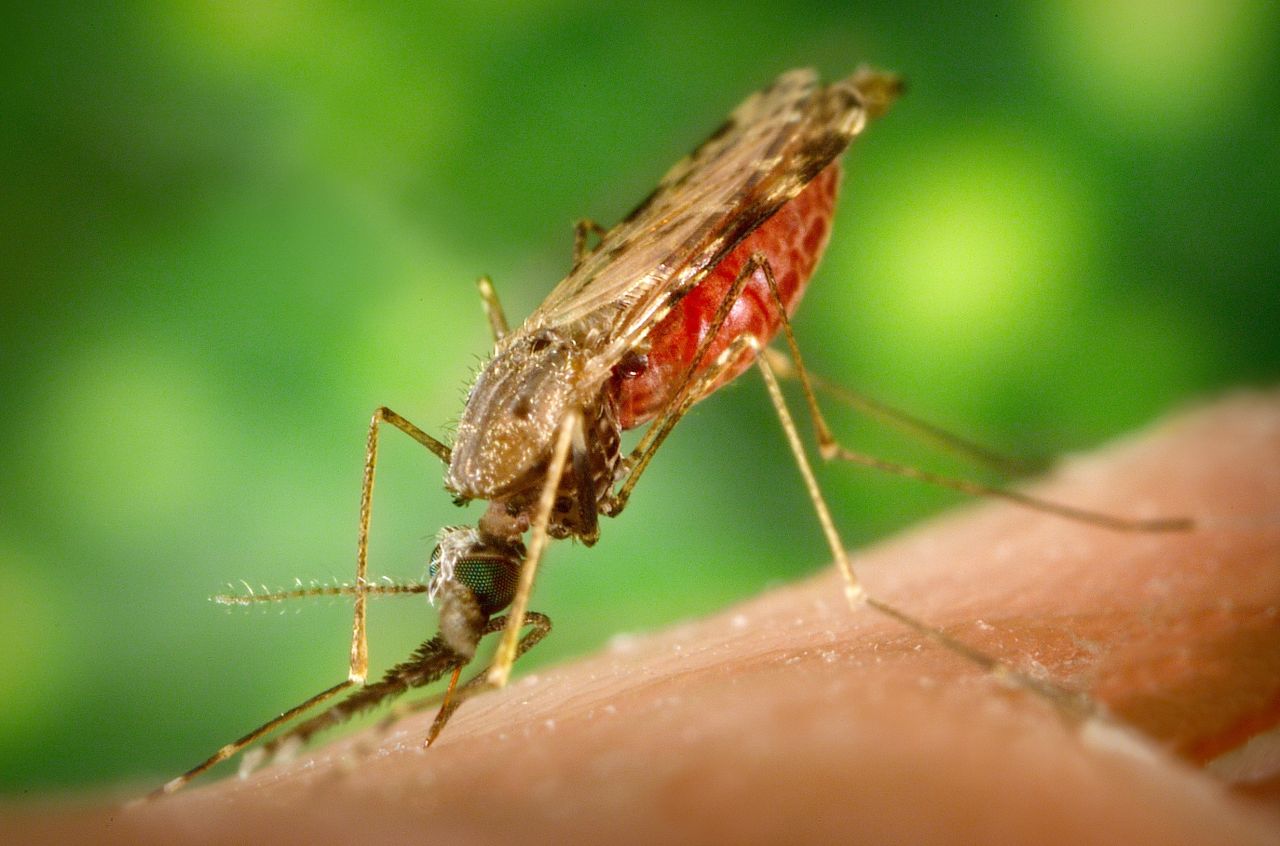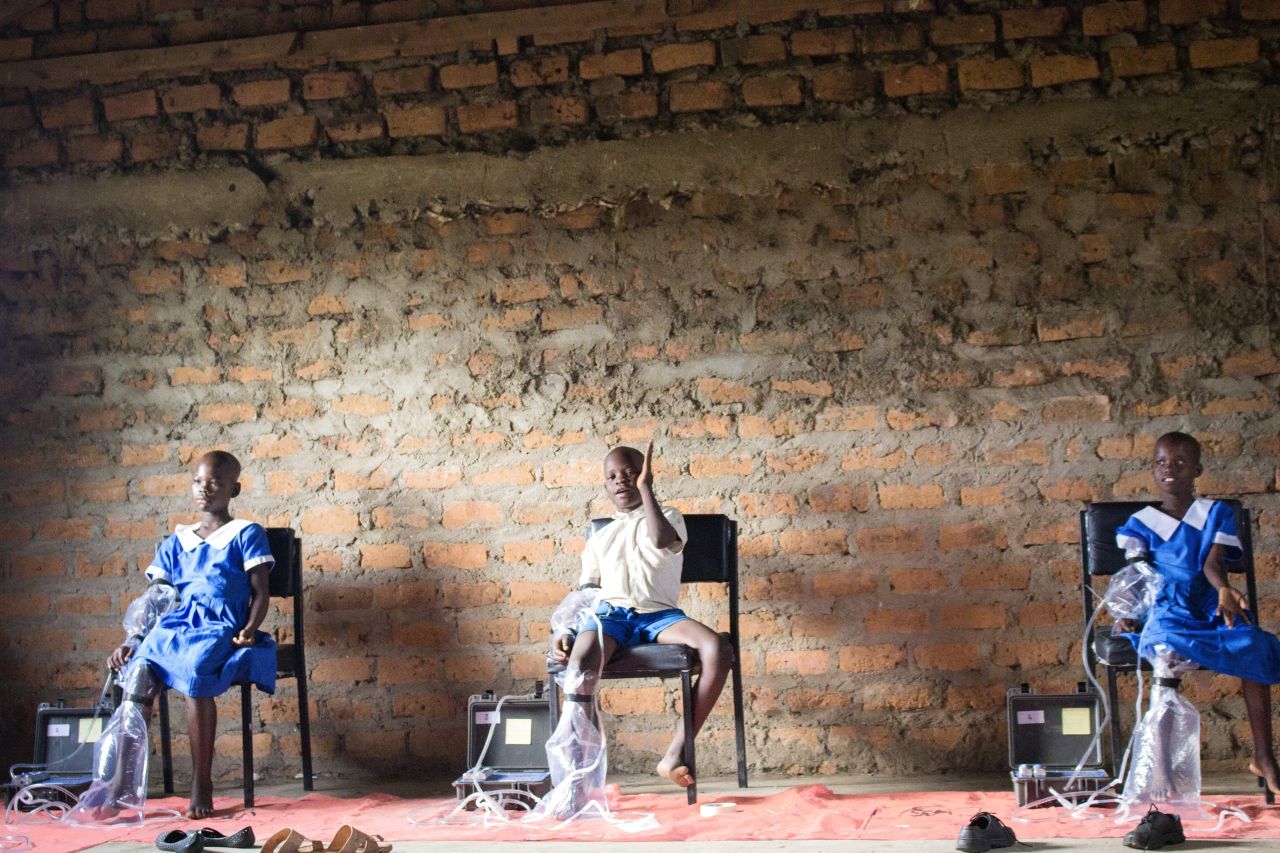Smells like malaria
An intriguing olfactory relationship has recently been shown to exist between the malaria pathogen, mosquitoes and humans.

Anopheles species feeding on human. Image: Wikimedia Commons/James Gathany, CDC
Fascinating interactions between pathogens, the insects that carry them (known as vectors) and transmit the disease, and the end hosts are well known in plants – for example, plant viruses can change the taste of plants to manipulate aphid behaviour in their favor. But for human diseases, we have only recently started investigating how pathogens can manipulate their vector insects, e. g. by changing how often mosquitoes bite, or their end hosts, e. g. by changing the odor of infected humans.
What is malaria?
Malaria is a life-threatening infectious disease caused by parasites of the genus Plasmodium. It is transmitted to humans through the bite of infected female Anopheles mosquitoes. The parasites multiply in the liver and then infect the red blood cells, leading to symptoms such as fever, chills and anaemia. Anopheles mosquitoes are the vectors, i. e. the transmitters, of the disease, while humans are considered the end host, which means that the parasite completes its life cycle and causes disease within the human host.
To view this content, you must accept marketing and third-party cookies.
To view this content, you must accept marketing and third-party cookies.
Collecting odors
Mosquitoes are attracted to the odors of human skin and breath, which helps them track us down and bite us. Malaria changes the way people smell when they are infected, and, worryingly, it does so in a way that might make mosquitoes more likely to bite them and pick up the pathogen.
In our study, we collected the odors from hundreds of school children in Kenya, where malaria is widespread. Children are among the groups most vulnerable to malaria, so it is most important to find out how malaria affects them. After collecting the odors from the children’s arms and feet enclosed in bags on a special filter, we were able to investigate what chemicals were present and what the differences were between malaria-infected and uninfected children (click here to learn more).

The odor of children in Kenya is captured. One arm and one leg of every child are sealed airtight in separate plastic bags. Using a pump, air is pumped into the bag and sucked back out through a filter. The chemical compounds that compose the child's odor are captured on the filter and can be analyzed in the laboratory. Image: © James Sims
This ETH study, along with others looking at the same topic, found that people infected with malaria produce more or less of specific chemicals compared to uninfected people – probably due to the way a malaria infection affects the body. It isn’t just due to being sick, though – people with symptoms typical for a malaria infection, such as fever, diarrhea and vomiting, but which had other causes, still smelled different to people with malaria[i]. Malaria seems to be altering the way people smell in a unique way. The positive aspect of this is that it could help us develop new tools to diagnose malaria quickly in large groups of people by investigating the chemical composition of their odor.
The negative aspect is that this unique malaria odor seems to be attractive for mosquitoes, meaning that mosquitos may choose which person to bite based on some of these chemicals. Indeed, uninfected mosquitoes preferred the smell of socks worn by children infected with malaria, which would make them more likely to bite them and pick up the pathogen[ii]. This would lead to greater spread of the disease, as more mosquitoes would become infected with malaria and transmit the disease onwards by biting other people.
Other mosquito species have recently been shown to be more attracted to the smell of mice infected with the Zika or Dengue viruses (two other mosquito-transmitted diseases that affect humans) compared to uninfected mice[iii]. How exactly this happens is not yet clear. Could changing the odor of the host be a mechanism that disease-causing pathogens have evolved to take advantage of mosquito senses and get spread more easily?
References
i. Pulido H et al. 2021 A unique volatile signature distinguishes malaria infection from other conditions that cause similar symptoms. Scientific Reports 11, 13928. https://doi.org/10.1038/s41598-021-92962-x
ii. Cornwall W. 2018. Malaria infection creates a ‘human perfume' that makes us more attractive to mosquitoes. doi: 10.1126/science.aat8993
iii. Leslie M. 2022. Zika, dengue viruses make victims smell better to mosquitoes. doi: 10.1126/science.add7382
